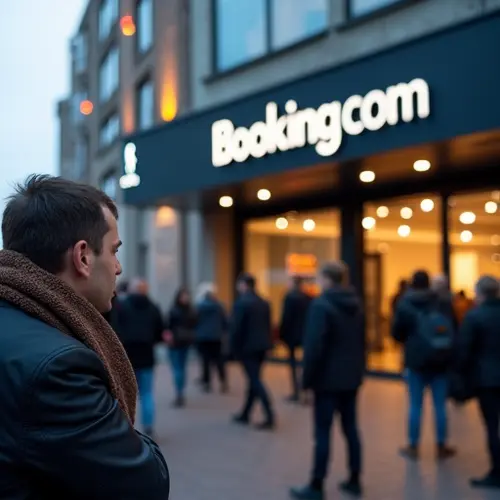
Major Legal Battle Looms as Dutch Hotels Seek Compensation
Nearly 1,100 Dutch hotels have joined a massive European collective action against Booking.com, seeking compensation for alleged anti-competitive practices. The hotels claim they were unfairly prevented from offering lower prices on their own websites compared to the rates available on the Booking.com platform.
European-Wide Movement Gains Momentum
The mass claim, organized by Royal Hospitality Netherlands (KHN) and European hotel association Hotrec, has attracted over 15,000 hotels across Europe. The deadline for joining the claim expires today, marking a significant moment in the ongoing dispute between accommodation providers and the dominant online travel platform.
Legal Foundation: EU Court Ruling
The collective action follows a landmark ruling by the European Court of Justice nearly a year ago, which determined that Booking.com could not impose price restrictions on hotels. The court found that such practices violated EU competition law by preventing hotels from offering better deals directly to consumers.
Hoteliers Voice Frustration
Frans Hazen, owner of Grand Hotel De Draak in Bergen op Zoom, expressed the sentiment shared by many participating hotels: "Booking has internationally proven many services to the hotel industry, that cannot be denied. However, the bigger and more powerful they became, the more they lost contact with hotels. They became more arrogant, paternalistic, establishing rules that protected their business rather than creating a mutual, reciprocal revenue model."
Booking.com's Defense
Booking.com maintains that its pricing policies were justified. A spokesperson stated: "Hotels may use our platform for free to reach guests. But it was not intended to then offer the room cheaper on your own website. Otherwise, we have no viable revenue model." The company has indicated it will vigorously contest any legal action and has no plans to settle.
Potential Compensation Claims
According to KHN and Hotrec, hotel owners could potentially claim 30% or more of the commission fees paid to Booking.com during the period when price parity clauses were enforced. Legal experts note that hotels must be able to demonstrate the specific agreements to have a chance at compensation.
Industry Impact and Future Implications
This case represents a significant challenge to the business models of major online travel platforms. While Booking.com has since removed the controversial price parity requirements, the outcome of this mass claim could set important precedents for platform-hotel relationships across the digital economy.

 Nederlands
Nederlands English
English Français
Français Deutsch
Deutsch Español
Español Português
Português







